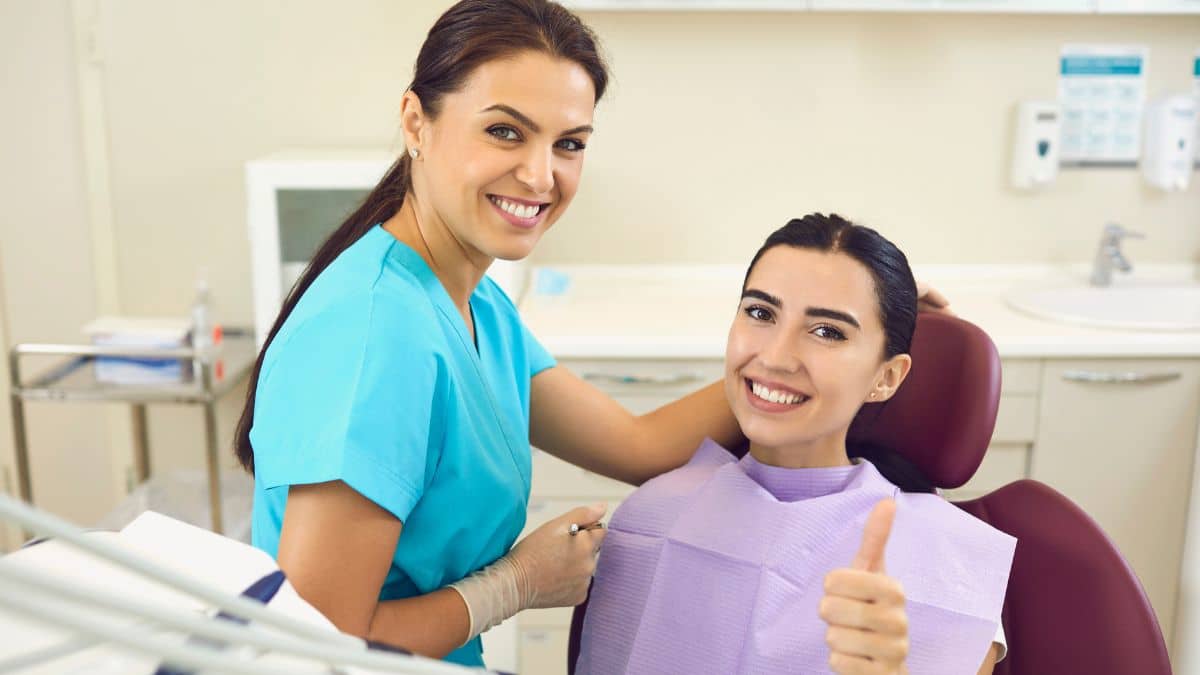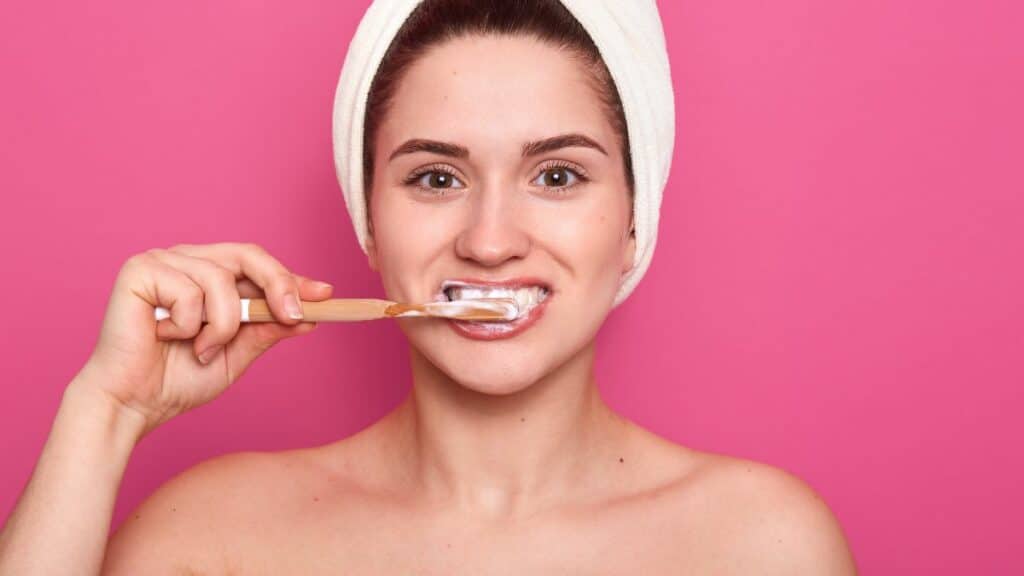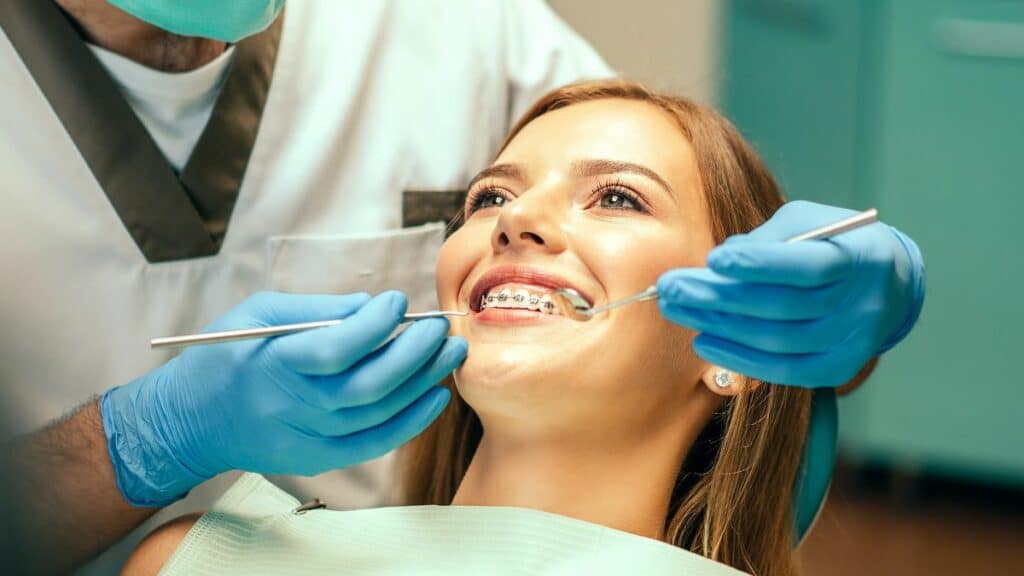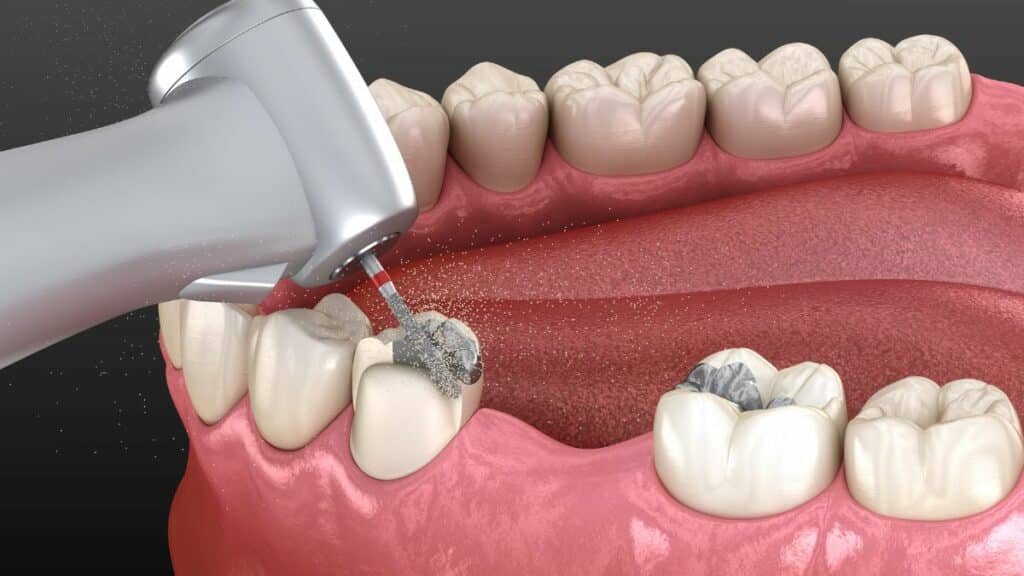When we’re talking about our health, it’s natural to have concerns and ask questions. Is it safe to use a dentist reference? This is a question that I often hear from my readers. Let’s delve into this topic and provide some clarity.
First off, when you’re looking for a new dentist, references can be incredibly helpful. They give us an inside look at the professional’s skills, their approach towards patients and their reputation in the community. However, just like any other source of information, they should not be the only factor influencing your decision.
In order to make an informed choice about your dental care provider, combine those references with other important considerations such as their qualifications or years of experience in dentistry. By doing so you’ll ensure that your teeth are getting the top-notch care they deserve!
Understanding Dental Safety
Dental safety is an aspect of oral health that’s often overlooked, but it’s a critical part of ensuring overall wellness. When we talk about dental safety, we’re referring to the measures and precautions taken by both dentists and patients to ensure a safe, hygienic environment during dental procedures.
In any dental office you’ll find stringent sterilization processes in place. These are designed to eliminate or reduce the spread of infections between patients and healthcare providers. Dental professionals adhere strictly to guidelines set forth by agencies like the American Dental Association (ADA) and Centers for Disease Control (CDC). They include practices such as proper hand hygiene, use of personal protective equipment (PPE), instrument sterilization methods, clean waterlines for dental units – all key components in maintaining a safe environment.
Here’s some interesting data highlighting this:
| Year | ADA Compliance Rate |
|---|---|
| 2015 | 89% |
| 2016 | 92% |
| 2017 | 95% |
These figures show how seriously dentistry takes patient safety.
Moreover, technology has been instrumental in enhancing safety standards too. For example, digital x-rays not only provide clearer images but also significantly lower radiation exposure compared with traditional radiography techniques.
However there can be risks involved too if proper care isn’t taken. Let me share an anecdote: A few years back I had a patient who contracted an infection following what should have been routine tooth extraction surgery because he didn’t follow post-operative instructions carefully enough – which brings us neatly onto another essential aspect of dental safety: Patient responsibility!
Patients need to understand their role in maintaining their own oral health – including sticking rigorously with aftercare advice given by their dentist following any procedure they’ve undergone; keeping up regular cleaning routines at home; attending scheduled check-ups on time etcetera.
This discussion wouldn’t be complete without acknowledging that dental professionals also have to look after their own safety. They’re at risk of occupational injuries such as repetitive strain injury, eye injuries from flying debris, and exposure to infectious diseases.
So the bottom line is, while your dentist’s office might seem like one of the safest places you could be (and generally it is), ensuring dental safety requires a joint effort from both patients and healthcare providers alike!
Role of Professional Dentist References
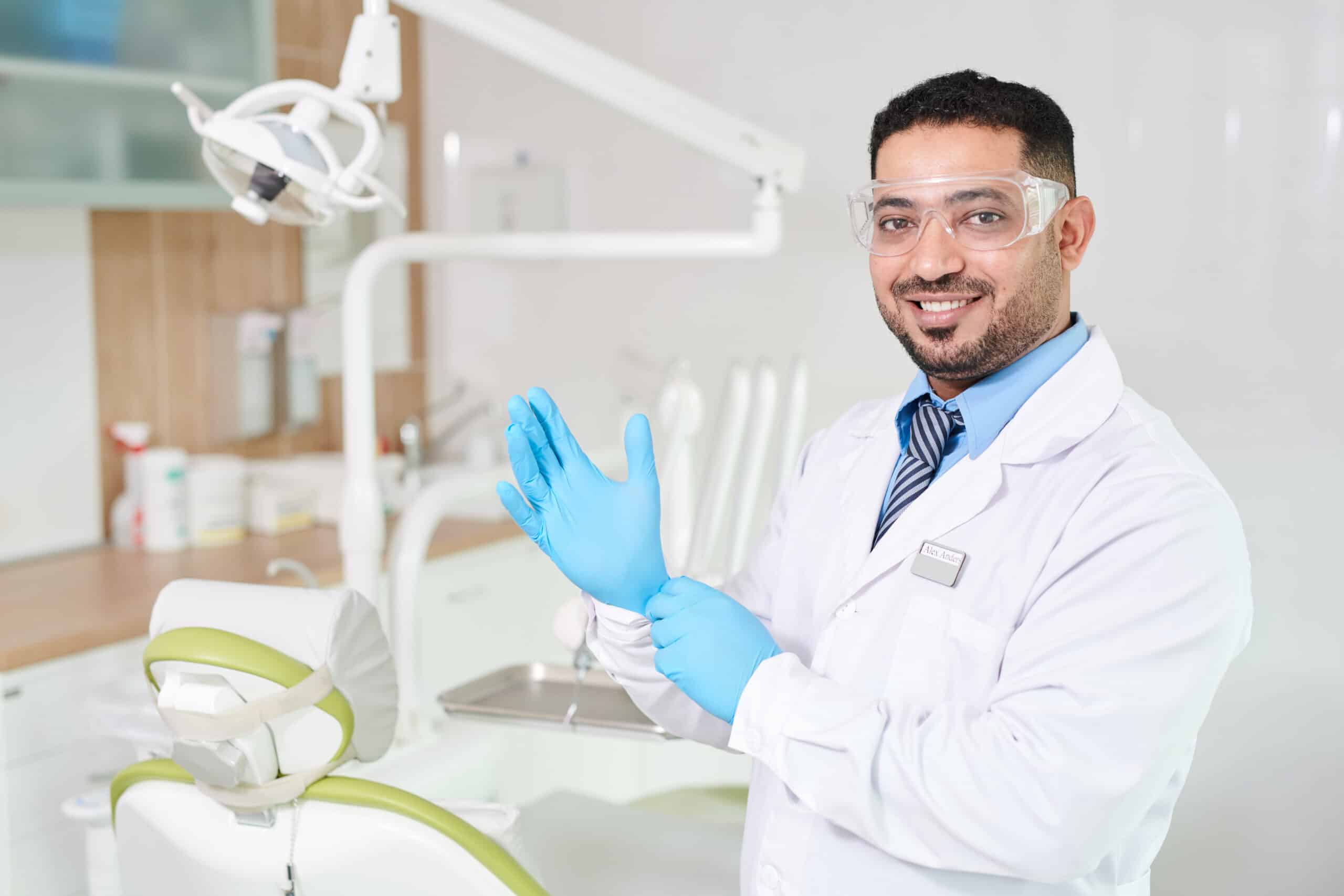
I’ve got to tell you, when it comes to choosing a dentist, professional references play an essential role. They’re not just a formality or bureaucratic hoop to jump through. On the contrary, they provide invaluable insight into a dentist’s qualifications and competence.
Now, let me explain why that is. First off, dentists are medical professionals who have access to your health information and perform procedures that can significantly impact your wellbeing. So naturally you’d want someone who’s well-regarded by their peers in the industry.
So where do these references come from? Well typically they’re provided by other dental professionals who’ve either worked directly with the dentist in question or know of their work reputation within the community. It’s not unlike getting recommendations for any other job – but with potentially higher stakes considering we’re talking about healthcare here.
Here’s what makes them so vital:
- Validation: References confirm whether or not this person has successfully completed necessary training and education.
- Reliability: They attest if this individual maintains high standards of practice consistently over time.
- Professionalism: They speak volumes about how this dentist conducts themselves professionally – punctuality, integrity and communication skills included.
But let me be clear – while important, professional references aren’t everything when selecting a quality dentist; personal comfort should also be considered! Just remember though: No matter how comfortable you feel around them personally doesn’t negate their need for professional credentials!
In conclusion (and I can’t stress this enough), never underestimate the value of solid professional dental references! They could mean all difference between an exceptional oral care experience…and one that leaves something to be desired!
Significance of Checking Dentist Credentials
Let’s face it, we’ve all had that moment of anxiety sitting in the dentist’s chair. It’s perfectly normal to feel a bit apprehensive. However, if you’ve done your homework and checked your dentist’s credentials thoroughly, there should be no cause for concern.
In today’s digital age, it has become easier than ever to check on the qualifications and certifications of healthcare professionals. This is crucial because having confidence in your dentist plays an important role in maintaining oral health care routines.
Just imagine trusting someone with little to no experience or credentials to carry out intricate procedures such as root canals or dental implants! The thought itself is terrifying. Here are some key reasons why checking dentist credentials matters:
- Professional Competence: Dentists go through years of rigorous training before they can practice professionally. By verifying their qualifications, you’re ensuring they have the necessary knowledge and skills.
- Regulatory Compliance: Every practicing dentist must be registered with a recognized dental board or association within their country or state. This assures adherence to professional guidelines.
- Ethical Practice: Checking credentials also gives insights into any ethical violations committed by the practitioner.
While many people might think this process tedious or unnecessary, I’d argue that taking these steps ensures peace of mind when entrusting our oral health – which is linked directly to our overall well-being – into someone else’s hands.
It doesn’t take much time either; most dentists have their certification displayed prominently within their clinics for easy verification. Alternatively, one could look up online databases provided by regulatory bodies like American Dental Association (ADA) among others for comprehensive information about practitioners across states.
So next time before sliding onto that examination chair remember – a little due diligence goes a long way towards securing not just sparkling smiles but also good overall health!
Assessing the Reputation of Your Dentist

When it’s time to visit the dentist, I can’t stress enough how important it is to find a reputable one. After all, they’re not just cleaning your teeth – they’re looking after your overall oral health. So how exactly do you go about assessing their reputation? Well, there are several ways.
Firstly, consider asking for recommendations from friends or family members who live in your area. They’ll likely have firsthand experience and be able to provide an honest opinion on their dentist’s quality of service. While this method isn’t foolproof (everyone has different standards), it does offer some valuable insights.
Another option is checking out online reviews and ratings for dentists in your locality. Websites like Healthgrades or Zocdoc can give you an idea about what other patients think of a particular dental practice based on factors like wait times, staff friendliness, cleanliness of the facility and importantly – treatment satisfaction.
Professional credentials also play a significant role in evaluating a dentist’s reputation:
- Dental Board Certifications: Check if they’re board-certified by American Board of Dental Specialties (ABDS). This certification ensures that the dentist has undergone rigorous training beyond basic dental school.
- Memberships & Affiliations: Look into whether they hold memberships with professional organizations such as American Dental Association(ADA) or Academy Of General Dentistry(AGD). These affiliations reflect commitment towards staying updated with advancements in dentistry.
Lastly but not least important – trust your instincts! You should feel comfortable talking to them about any concerns or questions you may have regarding treatments proposed or costs involved; after all good communication forms basis for any successful doctor-patient relationship!
Keep these pointers in mind when choosing your next dental healthcare provider and remember – never compromise on quality when it comes down to something as crucial as oral health!
Key Factors to Consider in a Safe Dental Clinic
When it comes to choosing the right dental clinic, there’s more than meets the eye. It isn’t just about finding a dentist with good reviews or convenient hours. The safety standards of the clinic are paramount and can significantly impact your overall experience.
Firstly, let’s talk hygiene practices. The cleanliness of any healthcare facility is critical, but it becomes even more important when we’re talking about dental clinics where procedures often involve direct contact with bodily fluids. In fact, according to the Centers for Disease Control and Prevention (CDC), proper infection control practices can prevent almost all transmission of disease in dental settings.
Here are some key aspects you should look out for:
- Sterilization equipment: Does the clinic use an autoclave or other high-grade sterilization equipment?
- Personal Protective Equipment (PPE): Are staff wearing appropriate PPE like gloves, masks, and eye protection?
- Cleanliness: Is the office visibly clean? Are instruments stored correctly?
Next up on our list is qualifications and training. Any reputable dental clinic should be able to provide proof that their dentists have obtained relevant qualifications from accredited institutions. Furthermore, continuous education plays an essential role in ensuring that dentists stay updated with latest advancements in technology and treatment methods.
Lastly but by no means least – emergency preparedness! Dental procedures aren’t generally associated with life-threatening emergencies; however situations could arise requiring immediate attention such as allergic reactions or cardiac events during treatment sessions.
The American Dental Association recommends that all oral health care personnel be trained annually on what to do if a medical emergency occurs within their practice setting.
So there you have it – hygiene practices; qualifications & training; emergency preparedness – three key factors I recommend considering when assessing whether your chosen dentist operates within safe parameters!
Potential Risks and How to Avoid Them at the Dentist’s Office
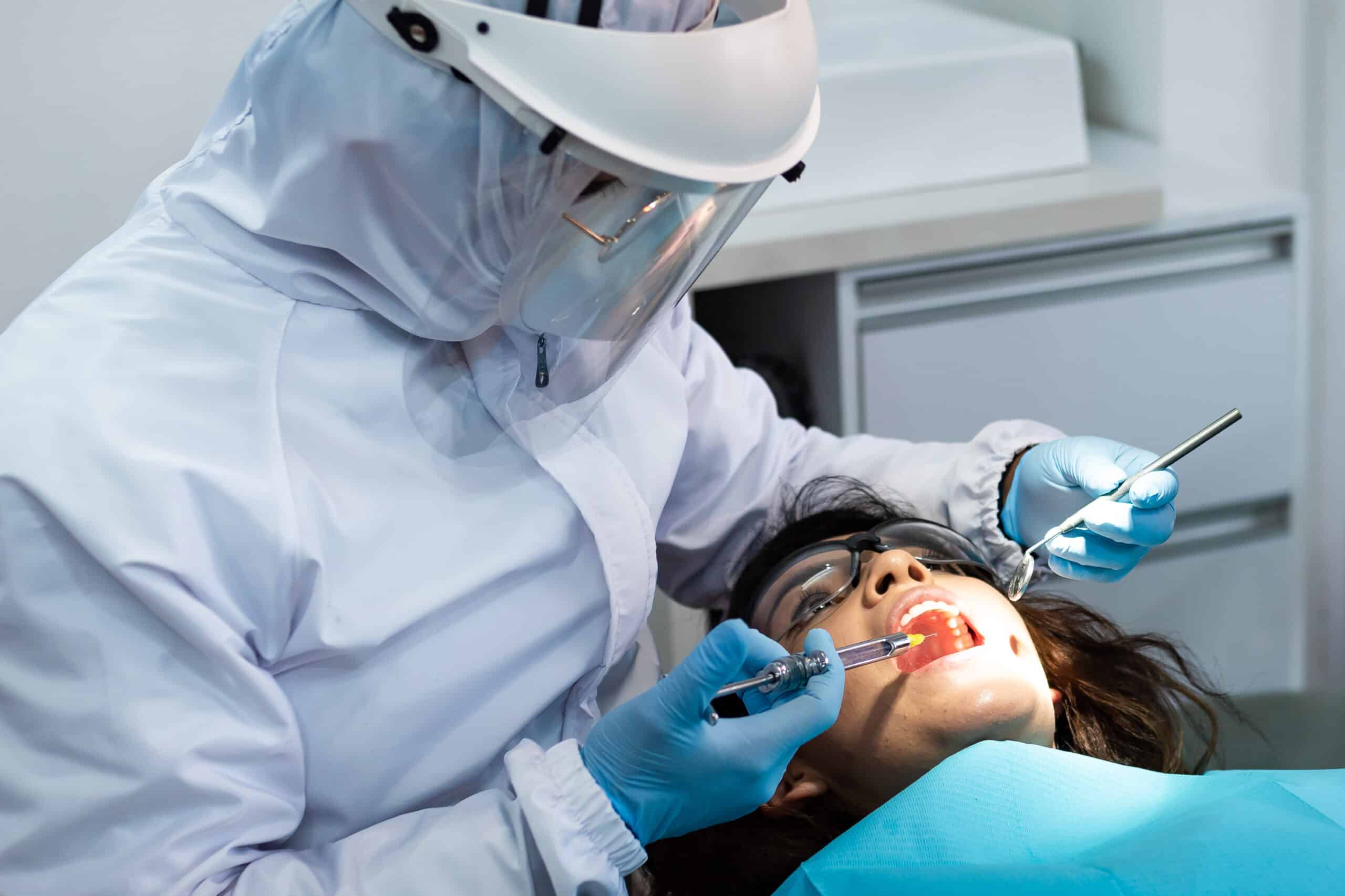
Let me tell you, a visit to the dentist is typically safe. But like any medical procedure, there can be potential risks involved. It’s important to be aware of these risks and how best to avoid them.
One risk we often overlook is cross-contamination from dental instruments. Despite strict sterilization procedures, bacteria can sometimes survive on dental tools if they’re not properly cleaned. To reduce this risk, always make sure your dentist follows proper sanitization protocols.
Radiation exposure from x-rays is another concern some folks have about visiting the dentist’s office. While modern dental x-ray machines emit very low levels of radiation, it’s still something worth considering if you’re having multiple procedures or frequent check-ups.
Here are some strategies that could help minimize your exposure:
- Ask for a lead apron during x-rays.
- Request digital x-rays which use less radiation than traditional film-based ones.
- Limit unnecessary repeat exams unless absolutely necessary.
You might also worry about allergic reactions or sensitivities to materials used in fillings or other treatments such as latex gloves used by dentists and their staffs. If you know that you’re allergic or sensitive to certain substances commonly used in dentistry like latex or specific types of metal alloys – do inform your dentist beforehand so alternative materials can be arranged where possible.
Lastly but importantly – anxiety! Dental phobia affects many people and causes them undue stress when visiting the office. Now here’s what I suggest: Speak openly with your dentist about any fears or anxieties; most will gladly work with patients who experience heightened fear around dental visits by offering sedation options that may alleviate discomfort during treatment sessions!
And remember – communication really does hold key importance here! Don’t hesitate sharing concerns with professionals at hand – because after all – it’s YOUR health we’re talking about!
Patient Testimonials: Another Form of Reference
Digging into patient testimonials can be a gold mine when you’re on the hunt for a new dentist. I’ve found that they often provide an unfiltered view of a dental practice, showing both the strengths and potential weaknesses. But remember, it’s essential to approach these with a critical eye.
There’s no denying that positive reviews are encouraging. They give us faith in the service provided by our prospective dentists. However, let’s not forget that people are more likely to leave feedback after negative experiences than positive ones – it’s just human nature! So if you stumble upon some less-than-stellar comments about your potential dentist don’t get disheartened immediately.
Instead of getting discouraged by negative reviews, try analyzing them objectively. Look out for recurring issues like complaints about wait times or lackluster customer service rather than isolated incidents.
I also recommend taking note of how the dentist responds to criticism online – this could show their dedication (or lack thereof) towards improving their services based on patient feedback.
Remember though; while testimonials can certainly guide your decision-making process, they shouldn’t solely dictate your choice. Pairing them up with professional references and personal recommendations will give you comprehensive insight into whether or not this is indeed “the one” among all those dentists vying for your attention!
Lastly but importantly:
- Don’t fall prey to overly flattering yet vague reviews
- Keep an eye out for constructive criticism
- Evaluate responses from the dental office
After all, choosing a new healthcare provider is no small feat – doing thorough research will pay off in spades!
Conclusion: Is It Really Safe with a Dentist Reference?
After delving into the world of dental references, I’ve come to a few conclusions. Let’s take some time to summarize and address the question that’s been lingering throughout this article – is it really safe with a dentist reference?
Firstly, my research suggests that it can indeed be safe. Having a reference from your previous or current dentist could provide valuable insights for your new dentist. This isn’t just about easing their transition in understanding your oral health history – but also about safeguarding you against potential dental complications.
That being said, there are factors to consider:
- The credibility of the referring dentist
- How up-to-date and accurate their records are
- Whether they’re providing an unbiased account
These elements play significant roles in ensuring safety when using a dentist reference.
There’s no denying that data errors might occur during record transmission which could lead to misunderstandings about treatment needs or pre-existing conditions. However, modern technology has drastically reduced such risks by facilitating secure and efficient sharing of digital dental records.
In light of all these considerations, I believe we can conclude with reasonable confidence that yes—it is generally safe with a dentist reference as long as due diligence is exercised on both ends—the patient’s and the receiving practitioner’s end.
Still have concerns? That’s perfectly normal! Remember: you have every right to ask questions until you’re comfortable moving forward—with or without a referral.
Your safety should always be priority number one—so don’t hesitate asking questions if something doesn’t seem right.
Lastly remember what we discussed before: A well-informed patient makes for safer healthcare outcomes!

